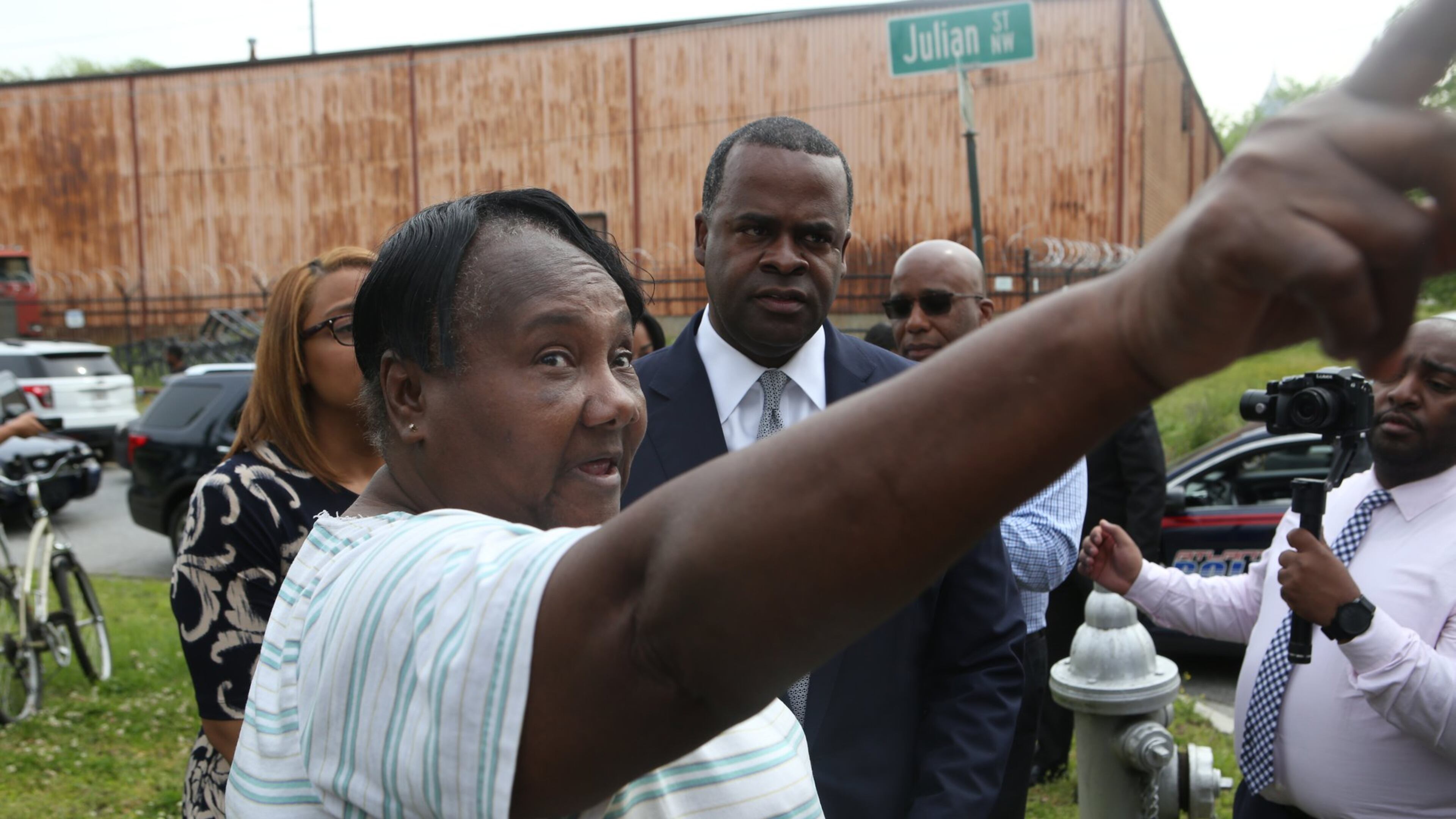Reed: Atlanta group raising money to preserve affordable housing

A group of Atlanta nonprofits and corporations are working to build a fund of up to $100 million to buy existing apartments and land to help preserve affordable housing on the city’s Westside.
Mayor Kasim Reed said Wednesday the private sector backed fund would be part of a broader public-private effort to address the city’s crunch on affordable housing. The goal is to prevent the displacement of longtime residents in neighborhoods such as those around the new Mercedes-Benz Stadium.
But the fund could be part of a game plan for investments in affordable housing elsewhere in the city, Reed said.
Atlanta finds itself in a historic building and growth spurt, with population up 7 percent from 2010 to 2017, according to the Atlanta Regional Commission. But the development boom has been geared mainly toward luxury housing.
The Westside Future Fund — a nonprofit created by Reed and the Atlanta Committee for Progress to promote the revitalization of English Avenue, Vine City and other neighborhoods in the shadow of the new stadium — will steer the new fund-raising effort.
The idea, Reed said, is to use the money to buy existing privately held apartments to keep them as permanent affordable units.
Reed said many working-class residents live in privately-owned apartments in area with fast-growing rents, and “unless you have an owner that is more concerned about keeping communities together than raising rents at market opportunities, then you are going to see a lot of folks displaced.”
Reed did not disclose the corporations and nonprofits engaged in the effort, nor did he provide a timeline for deploying funds.
A Future Fund representative did not immediately return messages seeking comment.
Like many growing cities, affordable housing has become a pressing issue in Atlanta. Much of the new development in the city since the Great Recession has been geared to luxury buyers and renters.
The real estate fund is one part of a multi-faceted effort to prevent displacement in Westside neighborhoods near the new Falcons and Atlanta United stadium that have seen a rise in property speculation in recent years as tens of millions of dollars is being invested in new infrastructure, jobs programs and parks.
In April, Reed and the Future Fund announced an Anti-Displacement Fund, a program backed by private donations, to help keep low-income homeowners from losing their homes from soaring property taxes caused by gentrification.
That program started in Vine City and English Avenue. But Reed said such initiatives are “scalable” and can be employed in other neighborhoods where new development is threatening to push out longtime residents.
“So what happens is, as people hear about them and read about them, they’re raising their hands and saying they’d like to explore [those initiatives] in our communities,” Reed said.
Last month, Future Fund Executive Director John Ahmann told The Atlanta Journal-Constitution his organization's community retention strategy envisions a mixed-income community. Creating enough new rental and for-purchase housing to prevent displacement is central to that plan.
Reed disclosed the fund-raising effort Wednesday at the unveiling of the Atlanta City Design, a master planning document designed to help guide the city's growth over the coming decades. The Atlanta Regional Commission has estimated that the region could add 2.5 million people in the 29-county area by 2040.
The Atlanta City Design contemplates what Atlanta should look like to accommodate the influx of new growth that could double its population in the coming decades. It focuses on housing, commercial development, green space and transit, taking input from residents as well as designers. The work, started in 2016, has been done at the Atlanta City Studio, which has moved to different parts of the city to gauge opinions from a diverse mix of residents.
Last week, Reed announced a plan to redevelop the Atlanta Civic Center into a mix of residences, shopping and office space. Under the plan, the city will sell the property to the Atlanta Housing Authority, which will partner with Houston developer Weingarten Realty.
Under the proposal, a minimum of 30 percent of the residential units built on site would be reserved as affordable for residents making 60 percent to 80 percent of the Area Median Income. According to the U.S. Department of Housing and Urban Development, the median income for a family in the Atlanta-Sandy Springs area in 2014 was $64,400.
MYAJC.COM: REAL JOURNALISM. REAL LOCAL IMPACT.
AJC Business reporter J. Scott Trubey keeps you updated on the latest news about economic development and commercial real estate in metro Atlanta and beyond. You'll find more on myAJC.com, including these stories:
- Savannah, Brunswick ports set record for fiscal year
- Portman ponders two more Midtown Atlanta towers
- Boeing opens innovation center at Georgia Tech
Never miss a minute of what's happening in local business news. Subscribe to myAJC.com.



